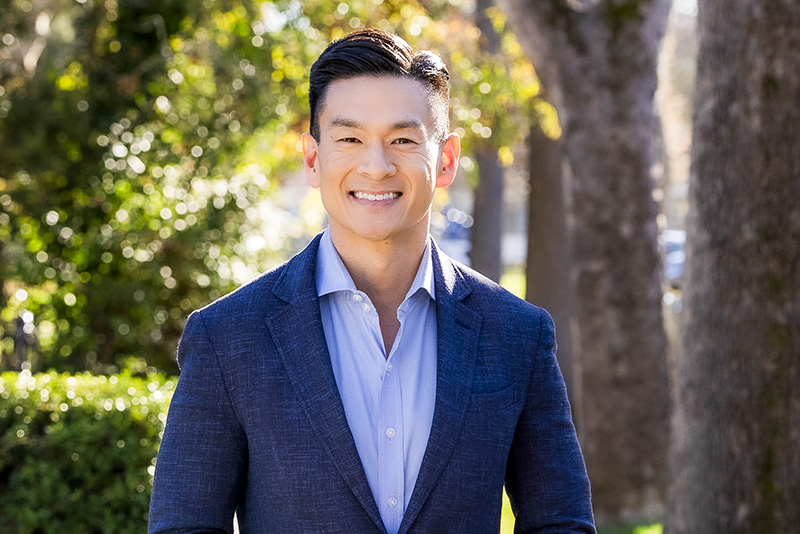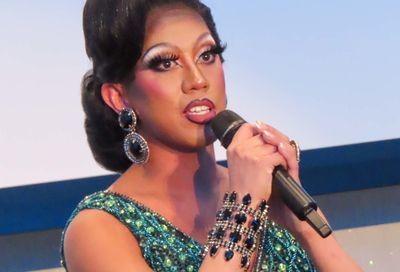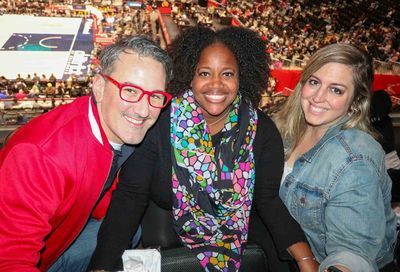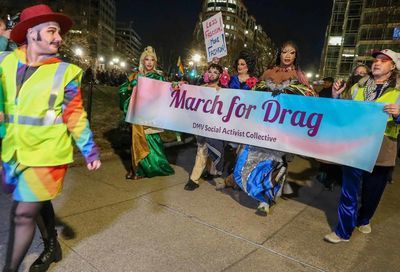Kamala Harris: Buttigieg campaign using stock photo of black woman a “big mistake”
It's the latest in a series of issues affecting Buttigieg's attempts to attract black voters to his campaign

Sen. Kamala Harris (D-CA) has said it was a “big mistake” for Mayor Pete Buttigieg’s campaign to use a stock photo of a Kenyan black woman to promote his Douglass Plan to tackle racial inequality.
Buttigieg, the first viable openly gay candidate for president, came under fire after it was revealed that a photo of a woman and her child on his campaign website was a stock photo taken in Kenya, rather than of a supporter of his campaign for the Democratic nomination.
His campaign issued a statement apologizing for the “confusion,” and blaming a contractor who worked on the website for sourcing and posting the image, the New York Times reports.
“As our campaign has grown, we have brought all of our web development in-house to help guard against mistakes like this,” the campaign said. “We apologize for its use and the confusion it created.”
Asked by reporters to comment on the photo, Harris — the only black woman running for the Democratic nomination — said she didn’t “have the words to describe that. I’m sure someone agrees that was a big mistake.”
“The Democratic nominee has got to be someone who has the experience of connecting with all of who we are as the diversity of the American people and is going to have to have the ability to speak with and speak to the issues that impact everyone,” Harris said. “My experience is that when you have actually had the experience of working with folks you have a better ability to represent.”
The senator continued: “Each nominee is going to have to speak to their experience and speak to their capacity and ability to be relevant to the diversity of who we are as a country, because the Democratic nominee is not only going to have to have the ability to go toe to toe against Donald Trump, but is going to have to have the ability to unify the party and the country. And you can’t unify folks if you don’t understand who they are and their specific needs and the right that they have to be represented based not on a stock photograph but who they actually are.”
.@KamalaHarris speaks to @taraprindiville about @PeteButtigieg using a stock photo of a Kenyan woman to promote his #DouglassPlan. Says the Dem nom can't unify if they don't understand the right people have to be represented "based not on a stock photo but who they actually are" pic.twitter.com/jsTMm93i05
— Tim Perry (@tperry518) November 18, 2019
It’s not the first time Harris has had to comment on Buttigieg’s attempts to connect with African American voters — a demographic with which he has thus far struggled.
Earlier this month Harris rejected the notion that African-Americans would be less likely to support Buttigieg because he is gay, calling it a “trope” and saying that the idea that the black community is less accepting of LGBTQ people was “just nonsense.”
“I’m never gonna buy into that trope — and I think it’s a trope that has evolved among some Democrats — to suggest that African-Americans are homophobic or that there [is] transphobia in the black community as a community,” Harris told CNN. “That’s just nonsense.”
She added: “The reality is that, sadly and unfortunately, in all communities bias occurs, and in particular homophobia and transphobia — I’ve spent my entire career fighting against it, so I know it is a fact. But to label one community in particular as being burdened by this bias — as compared to others — is misinformed, it’s misdirected, and it’s just simply wrong.”
Related: Kamala Harris says “trope” that black voters are more homophobic is “simply wrong”
It came after Buttigieg’s campaign conducted focus groups in South Carolina — where black voters comprise over 60% of the Democratic electorate — and found that black voters had a number of reservations about Buttigieg, including low name recognition, concerns about his youth, and noting that he lacked “passion, anger, and ‘pizzaz.’”
The headline outcome of the focus groups was that “being gay was a barrier for these voters” — though the report also noted that Buttigieg’s sexuality was not a “disqualifier.”
Buttigieg came under further scrutiny recently after the Washington Post reported that an op-ed touting support from 400 black South Carolinians for his Douglass Plan was the result of Buttigieg persuading “hundreds of prominent black South Carolinians to sign onto the plan even if they are not supporting his candidacy.”
It was a move that forced some of those included in the op-ed to announce that they hadn’t endorsed Buttigieg, with three political figures — Columbia City Council member Tameika Isaac Devine, state Rep. Ivory Thigpen, and the state party’s Black Caucus chair Johnnie Cordero — alleging that Buttigieg’s campaign misled them or misused their names in the op-ed. Cordero’s name has since been removed.
Buttigieg has also struggled to shake off his record as mayor in South Bend, Ind., where he has been criticized for not doing enough for people of color — a situation exacerbated after a white police officer shot and killed an unarmed black man, and not helped by Buttigeig firing the city’s first black police chief and cutting the number of black police officers.
Polls have shown Buttigieg struggling in South Carolina to attract black voters. A recent poll by Quinnipiac University shows Buttigieg polling at less than 1% among black voters in the state.
Buttigieg’s performance in South Carolina contrasts with his recent surge in Iowa, where two recent polls have shown him leading the Democratic field.
A Des Moines Register/CNN poll shows Buttigieg leading Sen. Elizabeth Warren (D-MA) by nine points, 25% versus 16%, with former Vice President Joe Biden and Sen. Bernie Sanders (I-VT) in third on 15%.
Related:
Amy Klobuchar says a woman with Pete Buttigieg’s resume wouldn’t be a viable presidential contender
Pete Buttigieg leads new Iowa poll, joins Warren, Biden and Sanders in top tier
Kamala Harris: Where does she stand on LGBTQ rights?
Read more:
Two people showed up for ‘Straight Pride’ in Dallas. Yes, two.
Chick-fil-A will stop donating millions to anti-LGBTQ charities
Utah trans woman forced to remove makeup for driver’s license photo
Support Metro Weekly’s Journalism
These are challenging times for news organizations. And yet it’s crucial we stay active and provide vital resources and information to both our local readers and the world. So won’t you please take a moment and consider supporting Metro Weekly with a membership? For as little as $5 a month, you can help ensure Metro Weekly magazine and MetroWeekly.com remain free, viable resources as we provide the best, most diverse, culturally-resonant LGBTQ coverage in both the D.C. region and around the world. Memberships come with exclusive perks and discounts, your own personal digital delivery of each week’s magazine (and an archive), access to our Member's Lounge when it launches this fall, and exclusive members-only items like Metro Weekly Membership Mugs and Tote Bags! Check out all our membership levels here and please join us today!























You must be logged in to post a comment.